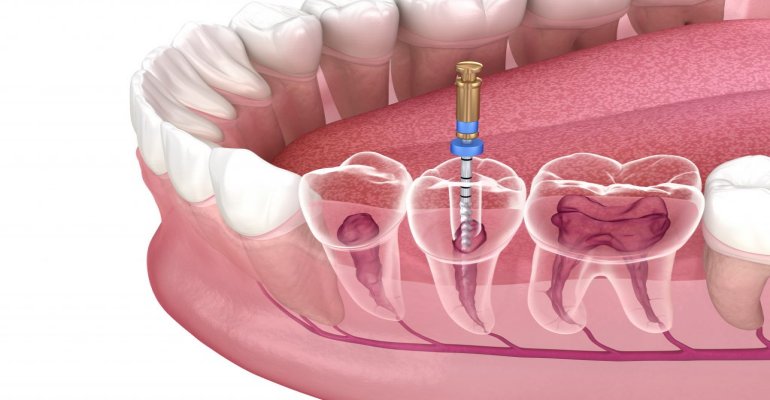
Types of Dental Implants: Choosing the Right Option for You
Dental implants have gained wide acceptance and are known as one of the most successful methods of tooth replacement that provide a permanent and attractive solution, restoring both form and function. However, there are different types of implants, and the selection depends on various factors including bone density, general oral health, and personal preferences. The four types are endosteal, subperiosteal, mini, and zygomatic implants, and these concern different dental needs and conditions. Knowledge of these alternative dental implants will really assist you to make an informed choice while fixing your mind on the type of dental implants that would suit your needs. In this all-inclusive guide, you will learn about the characteristics of each of the best dental implants, practical advantages, and indications with which one can determine the best choice to achieve a successful and lasting replacement of the missing tooth.
Table of Contents
- Introduction
- Endosteal Implants
- Subperiosteal Implants
- Other Implant Options (Mini Implants, Zygomatic Implants)
- Choosing the Right Implant Type
- Conclusion
- FAQs
Endosteal Implants
Description and Placement
Endosteal implants are the most commonly used type of dental implant and, therefore, form a strong and reliable base for tooth replacement. These implants take the shape of small screws and are surgically placed in the jawbone to function as artificial roots to support the replacement tooth. Endosteal implants are meant for patients with good bone density and oral health and require healing through osseointegration where the implant fuses with the bone. Once this integration takes place, stability is guaranteed, so it is listed as one of the best types of implants available. Endosteal implants are much more effective than other options available like subperiosteal implants, mini implants, or zygomatic implants if the person has sufficient bone support, thereby being easily accepted if long-term durability is a desire. All other alternative implants are most likely to be suggested for those patients who do not qualify for endosteal implants due to insufficient bone support, such as subperiosteal implants, mini implants, or zygomatic implants. Both patients and doctors can benefit from the knowledge of these differences when it comes to making a choice over what type of dental implants best meets the patient's needs.
Advantages and Disadvantages
| Advantages ✅ | Disadvantages ❌ |
|---|---|
| Strong and durable, ensuring long-term functionality | Requires sufficient bone density for successful placement |
| Provides a natural appearance and mimics the function of real teeth | Involves a surgical procedure followed by a healing period for osseointegration |
| High success rate due to complete integration with the jawbone |
Other Implant Options: Mini Implants & Zygomatic Implants
When considering the different types of dental implants, it is important to note that alternative options to traditional endosteal implants include mini implants and zygomatic implants. These option types of implants offer solutions to patients struggling with specific conditions of the teeth or bones and allow those who would not be eligible to receive traditional dental implants to still receive viable solutions.
Mini Implants
These are smaller, less invasive alternatives to endosteal implants used typically for the stabilization of dentures. They require much less bone density for placement. Because of their less-invasive nature, these are considered the most exciting options among patients with less jawbone mass since they offer a quick fix with a lot of other advantages.
Zygomatic Implants
The other type of implant, zygomatic implants, are implanted into the zygoma, or cheekbone, as opposed to being inserted into the jawbone, thus this is the best choice for those who have lost a lot of bone from the upper jaw. Zygomatic implants do not require tedious bone graft procedures and can offer a stable and reliable foundation for dental restoration.
Suitability
- Mini implants: Ideal for patients with low bone density who need denture stabilization or prefer a less invasive option.
- Zygomatic implants: Come into the scene for such patients who have sustained significant upper jaw bone loss and have a contraindication for any of the traditional endosteal implants and wish an alternative but without resorting to bone grafting.
The decision on the best type of implant is determined by a variety of considerations, including bone density, oral health, and personal preferences. Learning the options available among implants enables the patient to make computer-aided decisions based on what will meet their best interest.
Choosing the Right Implant Type
Selecting the best dental implant type is a crucial decision that depends on several key factors. Understanding the different types of dental implants, including endosteal implants, subperiosteal implants, mini implants, and zygomatic implants, allows patients to make informed choices that align with their oral health needs and lifestyle.
| Factor | Considerations | Suitable Implant Types |
|---|---|---|
| Bone Density |
|
|
| Number of Missing Teeth |
|
|
| Patient Preferences & Lifestyle |
|
|
| Consultation with a Dental Specialist | Assessment of oral health and bone structure for personalized recommendation | All types (specialist consultation ensures the right choice) |
Consultation with a Dental Specialist
Choosing the correct dental implant for your needs requires the help of a trained dental implant specialist. A specialist at Radiant Smiles Dental Clinic will examine your oral health, the bone structure in your mouth, and even your preferences to recommend what implant options are best for you. This could be endosteal implants, subperiosteal implants, other types of mini implants, or zygomatic implants. Professional assessment ensures the best outcome for your smile and long-term dental health.
Conclusion
Selecting the correct type of dental implants will be instrumental in attaining long-term functional and aesthetic benefits. Besides the most popular endosteal implants—which are used predominantly for patients with healthy jawbone structure—there are subperiosteal, mini, and zygomatic implants for other patients with various dental conditions, for example, insufficient bone density or extensive bone loss. Such are the mini implants that are recommended for those who desire the least invasive procedure. On the other hand, zygomatic implants are ideal for patients who have severe bone loss in the upper jaw and may not be candidates for traditional implant types, such as endosseous implants. The best type of dental implants for you depends on your individual needs, such as the condition of your jawbone, how many teeth you have missing, and your preferences. Evaluating the implant options available is significant; it will also be important to consult a dental professional. The consultation will ensure that you are fitted with the most suitable implant for your oral health, thus giving way to the best functionality and aesthetics. Weighing the types of dental implants available help you decide on which one best meets your health and lifestyle goals. Still not quite sure which dental implant option is right for you? Schedule a consultation with Radiant Smiles Dental Clinic to learn about your best implant options for a confident and healthy smile.
🔹 Contact us today at Radiant Smiles Dental Clinic!
FAQs
- How can I know which kind of dental implant is best for me?
This choice depends on many factors: bone density, number of missing teeth, and the general condition of your teeth and gums. A Zoom consultation at Radiant Smiles Dental Clinic will fully determine your treatment plan options. - Are endosteal implants really better than subperiosteal implants?
Endosteal implants usually provide more stable support and have a wider success rate since they close in with the jawbone. For those with low density jawbones, however, a subperiosteal implant would be a better fit. - What are mini implants used for?
Mini implants are generally used to stabilize removable dentures or take care of situations wherein traditional implants cannot be used owing to insufficient available bone. - What are zygomatic implants and who needs them?
Longer than the average dental implant, zygomatic implants are anchored into the cheekbone instead of the jawbone (the zygoma). They are generally used for patients with severe upper jawbone loss and are not candidates for bone grafting. They are considered a little bit more invasive. - How long is the recovery after dental implant surgery?
The time it takes to heal actually does vary; however, full osseointegration takes 2-6 months. However, some may qualify for same-day implants, thereby reducing treatment time. - What do dental implants cost?
The implants can vary in price depending on the type of implant required, the material used, and extra procedures that may have to be done (bone grafting, for example). Contact Radiant Smiles Dental Clinic for a detailed treatment plan and pricing of your own. - Do dental implants need special care?
No, dental implants require the same dental care as natural teeth & systematic brushing, flossing, and professional follow-up checkups.

